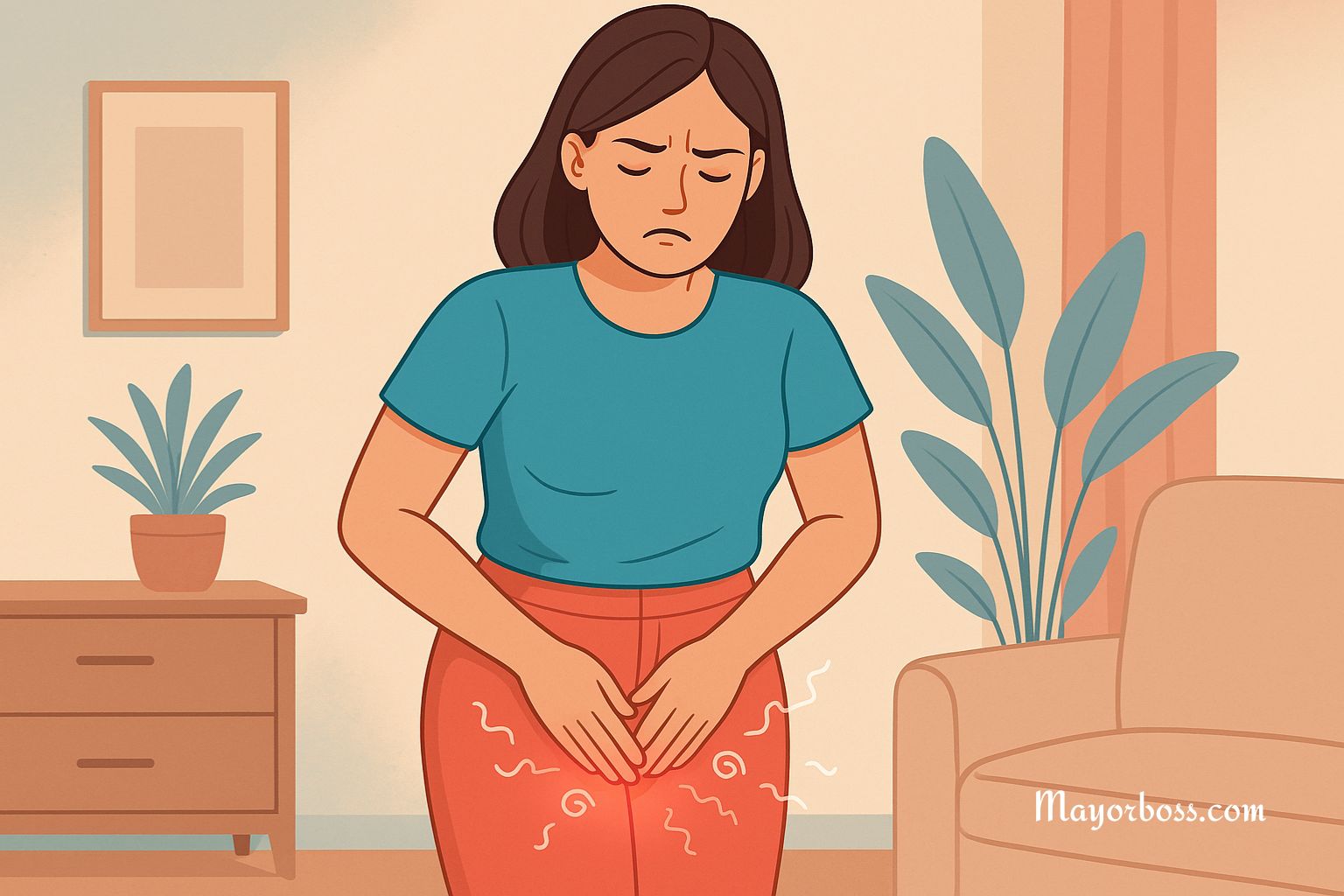The Vaginal Symptoms You Should Never Ignore
Your vaginal health is a critical part of your overall well-being. While occasional changes can be normal, certain symptoms may signal a more serious issue that needs medical attention. Ignoring these signs may lead to complications, including infections, fertility issues, or undiagnosed medical conditions. Understanding what’s normal—and what’s not—can help you take prompt action.
Below are vaginal symptoms you should never ignore.

Unusual Vaginal Discharge
Vaginal discharge is a normal part of the reproductive system. It helps keep the vagina clean and protects against infection. However, a sudden change in the color, amount, consistency, or smell may suggest a problem.
What to watch for:
- Green, yellow, or gray discharge
- Thick, cottage cheese-like texture
- White or grey watery discharge
- Strong, foul, or fishy odor
- Thick and white vaginal discharge
These may indicate infections or inflammation like vaginal thrush, bacterial vaginosis, trichomoniasis, or a yeast infection. In some cases, it could point to a sexually transmitted infection (STI). Talk with your healthcare professional if you’re having unusual discharge.
Burning or Itching
Mild irritation may happen occasionally, especially from scented soaps or tight clothing. But persistent burning, stinging, or itching should never be overlooked.
Possible causes include:
- Yeast infections
- Bacterial infections
- STIs such as herpes or chlamydia
- Allergic reactions to hygiene products
If symptoms last more than a couple of days or worsen, see your doctor. Ignoring them may lead to increased discomfort or complications.
Pain During Sex
Sex should not be painful. However, around 1 in every 10 females experience painful intercourse. This is medically called dyspareunia. If it is, it may be due to vaginal dryness, inflammation, infection, or an underlying medical condition.
Potential reasons include:
- Hormonal changes, especially after menopause
- Vaginal infections
- Sexually transmitted infections (STIs) — like chlamydia or gonorrhoea
- Ovarian cysts
- Bladder infections,
- Endometriosis
- Uterine fibroids
- Pelvic inflammatory disease
Persistent pain during intercourse can affect your physical and emotional health. Do not dismiss it as “normal.” Talk with your healthcare professional if you’re having painful intercourse. A pelvic exam and history can help identify the cause.
Bleeding Between Periods or After Menopause
Unexpected bleeding—whether light spotting or heavier flow—should always be evaluated.
It may result from:
- Hormonal imbalances
- Fibroids or polyps
- Cervical or uterine infections
- Precancerous changes or cancer
If you are postmenopausal, any vaginal bleeding is considered abnormal. It needs immediate attention to rule out serious conditions such as endometrial cancer.
Sores, Bumps, or Lumps
You should not ignore any new or unusual growths around your vaginal area. Sores that are painful or painless, ulcers, or lumps could be signs of an STI, such as herpes or syphilis.
Other possible causes:
- Genital warts (caused by HPV)
- Bartholin’s cysts
- Skin infections
A healthcare provider may recommend a physical exam, swab tests, or a biopsy depending on the appearance and location of the lesion.
Strong Vaginal Odor
The vagina has a natural scent, which can vary throughout the menstrual cycle. But a strong, foul, or fishy odor is not normal and often points to infection.
Common causes:
- Vaginitis
- Bacterial vaginosis
- Trichomoniasis
- Retained foreign object, such as a forgotten tampon
Ignoring this symptom may allow the infection to spread, causing pelvic pain or long-term reproductive issues. Contact your gynecologist.
Persistent Dryness
Occasional dryness may occur, but if it continues, it could affect comfort and quality of life. Vaginal dryness may result from hormonal changes, especially during perimenopause or after childbirth.
It can also signal:
- Autoimmune disorders
- Side effects of medications (e.g., antihistamines, antidepressants)
- Estrogen deficiency
If untreated, dryness can lead to irritation, painful intercourse, and even small tears in the vaginal tissue.
Pelvic Pain or Pressure
Discomfort in the lower abdomen or pelvis—especially if it’s chronic or severe—may be more than menstrual cramps.
Possible causes:
- Ovarian cysts
- Endometriosis
- Pelvic inflammatory disease
- Urinary tract infections
- Ectopic pregnancy (a medical emergency)
Do not assume this kind of pain is “just part of being a woman.” If it interferes with your daily life or gets worse, see your doctor.
Painful Urination
If it burns when you urinate, it may indicate an infection. Painful urination is a common sign of:
- Urinary tract infections
- Yeast infections
- STIs
Some infections can travel upward to the kidneys or cause pelvic inflammation if left untreated. Early treatment can prevent complications.
When to See a Doctor
If you notice any of these symptoms—especially if they are new, persistent, or worsening—it’s important to schedule a medical evaluation. Do not self-diagnose or delay care. Many conditions are treatable, especially when caught early.
Bring up any concerns with your healthcare provider or a gynecologist, even if they feel embarrassing or uncomfortable to discuss. Vaginal health is a vital part of your overall health, and you deserve to feel well and confident in your body.
